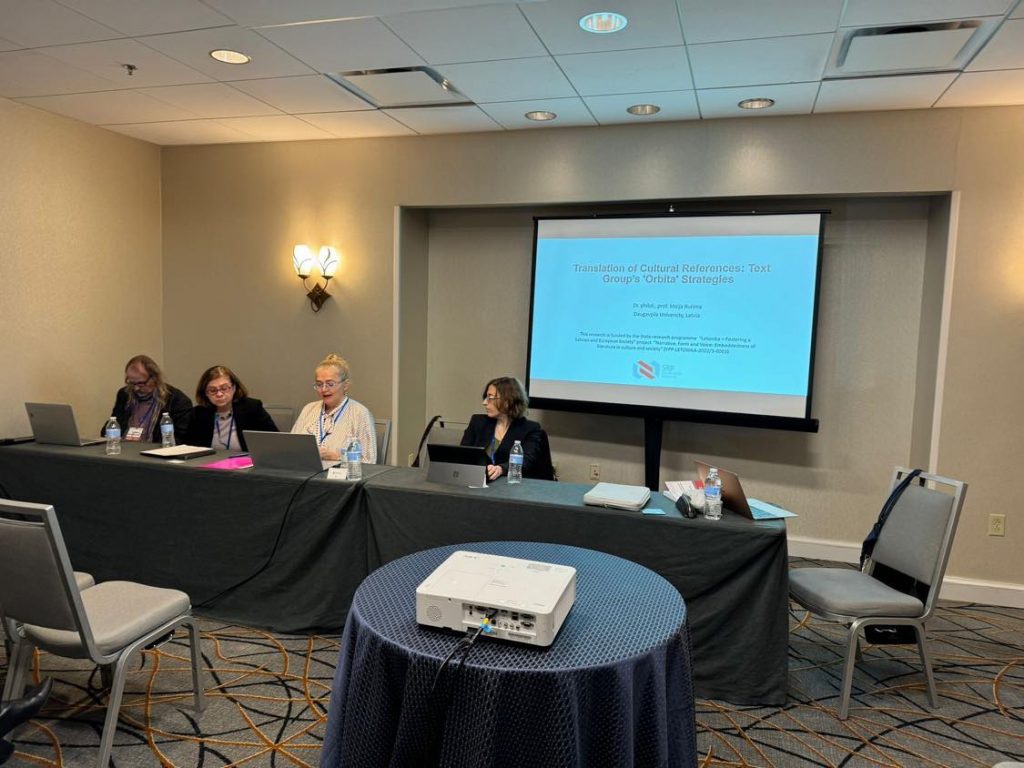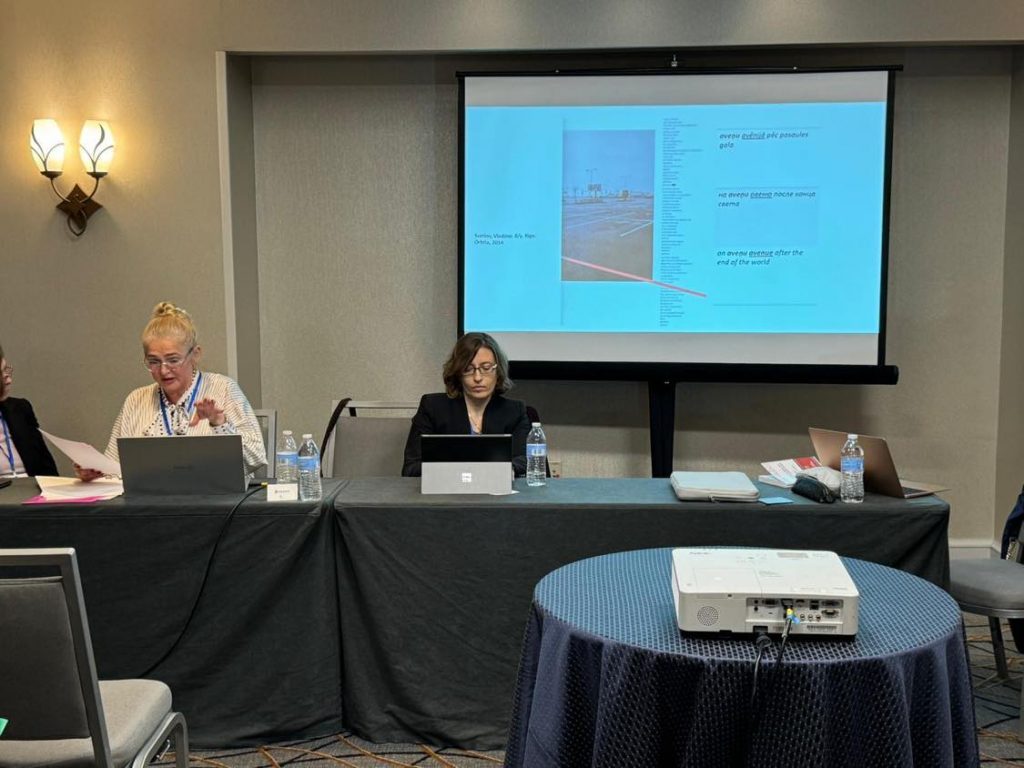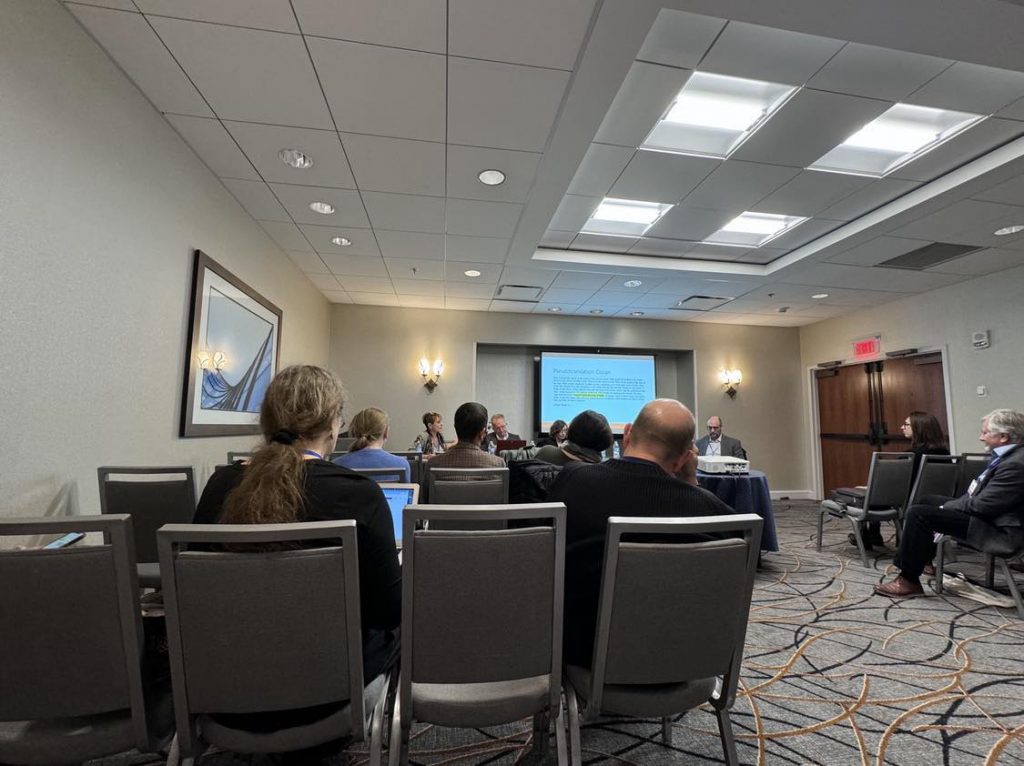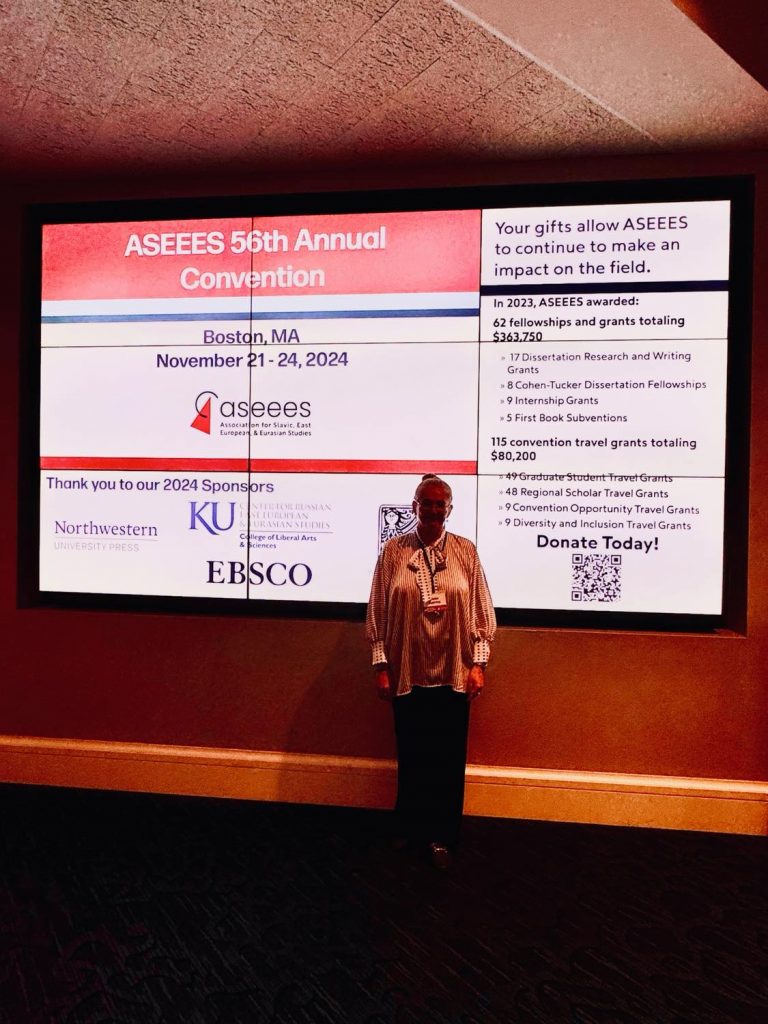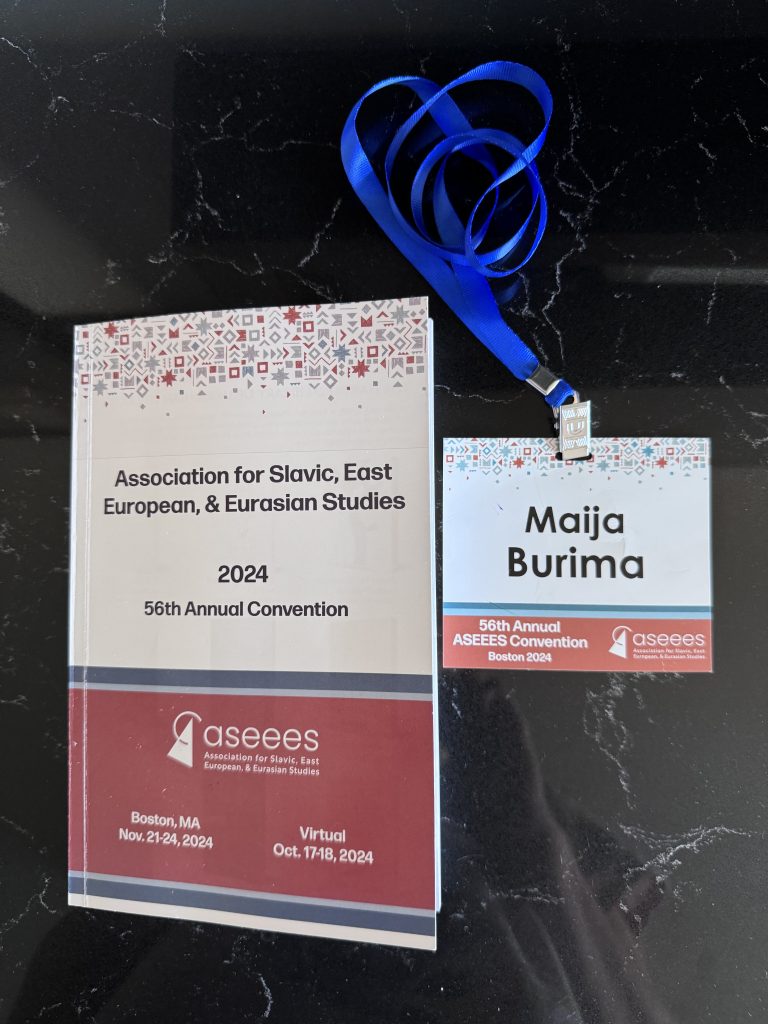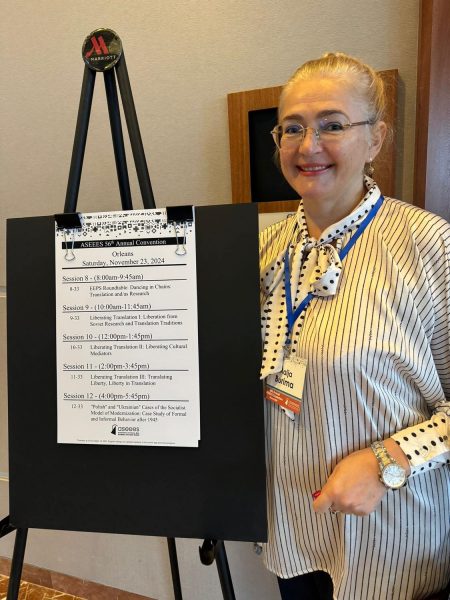
As part of the State research programme “Letonika — Fostering a Latvian and European Society” project “Narrative, Form and Voice: Embeddedness of Literature in Culture and Society” (No. VPP-LETONIKA-2022/3-0003), Dr. phil., Professor Maija Burima participated in the 56th Annual ASEES(Association for Slavic, East European, and Eurasian Studies) Convention
The theme of this year’s conference was Liberation. The conference took place from November 21 to 24, 2024, in Boston (USA). The conference is recognized as one of the leading academic events in its field. It offers a wide range of scientific discussions with more than 630 activities, including working groups, roundtable discussions, film screenings, and literary events. This year’s programme covered a wide range of topics, from politics, history, and architecture to literature, culture, and social sciences, providing a platform for dynamic academic dialogue and promoting the testing of new approaches in cultural processes and literary studies.
In the working group Liberating Translation II: Liberating Cultural Mediators, Maija Burima presented her research “Translation of Cultural References: Text Group “Orbita” Strategies.” Among the “Orbita” projects that initiate the merging and breaking down of artistic boundaries, bilingual and trilingual poetry collections occupy a special place as a linguistic and communicative strategy for interaction, which can be described as a conditional “hybrid genre.” The narrative of “Orbita” authors projects Kenneth White’s concept of geopoetics, which manifests itself in poetry texts and translations as an avoidance of specific localization or belonging to a specific cultural landscape as a customary system of orientation. In bilingual editions, experimental interaction manifests itself in the simultaneous belonging of the text to several linguistic systems, on the one hand, and the application of specific national codes that cannot be translated, on the other. Multilingualism and cultural codes in the original texts and translations of “Orbita” bilingual and trilingual poetry collections form heteroglossia and the use of ambiguous culture-specific lexical units.
At the end of the working group, there was a discussion on the use of different translation strategies in multilingual translations and the representation of hybridization in multilingual poetry collections in cultural interstices.
Additional information:
Dr. philol., Professor Maija Burima
Head of Centre for Latvian Studies, DU
